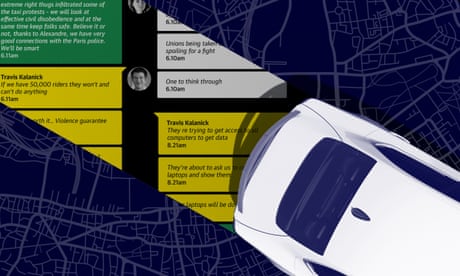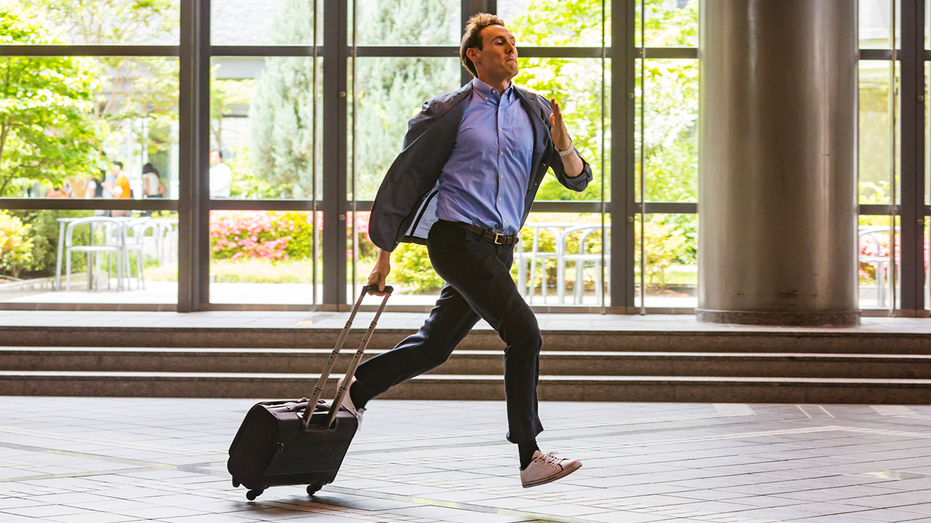- by foxnews
- 12 Mar 2025
What are the Uber files? A guide to cab-hailing firm’s ruthless expansion tactics
What are the Uber files? A guide to cab-hailing firm’s ruthless expansion tactics
- by theguardian
- 11 Jul 2022
- in news

The Uber files is a global investigation into a trove of 124,000 confidential documents from the tech company that were leaked to the Guardian. The data reveals how Uber flouted the law, duped police, exploited violence against drivers and secretly lobbied governments across the world.
The leak consists of emails, iMessages and WhatsApp exchanges between the Silicon Valley giant's most senior executives, as well as memos, presentations, notebooks, briefing papers and invoices.
The files cover 40 countries and span from 2013 to 2017, the period in which Uber went from a plucky startup to a global behemoth, brute-forcing its way into cities around the world with little regard for taxi regulations.
To facilitate a global investigation, the Guardian shared the data with 180 journalists at more than 40 media organisations via the International Consortium of Investigative Journalists (ICIJ).
The five-year span covered by the data covered a crucial period of Uber's expansion.
When the app first launched publicly in San Francisco in 2010, Uber customers could only hire luxury black vehicles. The introduction the following year of UberX, which enabled drivers to pick up passengers in their own cars, quickly gained traction and by early 2013 the service was operating in more than 30 locations - mostly in the US.
It was around this point that Uber sought to rapidly expand overseas. The period covered by the leaked data was marked by frenzied growth, as Uber used its record venture capital investments to subsidise journeys in cities across the world. By June 2017, when its controversial co-founder Travis Kalanick resigned as chief executive, Uber was operating in more than 600 locations.
Kalanick's replacement, Dara Khosrowshahi, set out to prove to shareholders that the company could deliver profitable growth. Five years later, Uber - now valued at $45bn - provides on-demand transport in more than 10,000 cities.
In a statement, Uber's senior vice-president of public affairs, Jill Hazelbaker, said: "We have not and will not make excuses for past behaviour that is clearly not in line with our present values. Instead, we ask the public to judge us by what we've done over the last five years and what we will do in the years to come."
She continued: "Uber is now one of the largest platforms for work in the world and an integral part of everyday life for over 100 million people. We've moved from an era of confrontation to one of collaboration, demonstrating a willingness to come to the table and find common ground with former opponents, including labour unions and taxi companies.
"We are now regulated in more than 10,000 cities around the world, working at all levels of government to improve the lives of those using our platform and the cities we serve."
In a separate statement, Travis Kalanick's spokesperson said he "never authorised any actions or programs that would obstruct justice in any country", and he "never suggested that Uber should take advantage of violence at the expense of driver safety. Any accusation that Mr Kalanick directed, engaged in, or was involved in any of these activities is completely false."
"The reality was that Uber's expansion initiatives were led by over a hundred leaders in dozens of countries around the world and at all times under the direct oversight and with the full approval of Uber's robust legal, policy, and compliance groups."
The spokesperson added: "When Mr Kalanick co-founded Uber in 2009, he and the rest of the Uber team pioneered an industry that has now become a verb. To do this required a change of the status quo, as Uber became a serious competitor in an industry where competition had been historically outlawed.
"As a natural and foreseeable result, entrenched industry interests all over the world fought to prevent the much-needed development of the transportation industry."
- by foxnews
- descember 09, 2016
Daring airport trend has travelers arriving at gate 15 minutes before takeoff
Flight passengers are participating in the new viral trend, "airport theory," with flyers arriving at their gates 15 minutes before their flights depart. A travel expert weighs in.
read more


